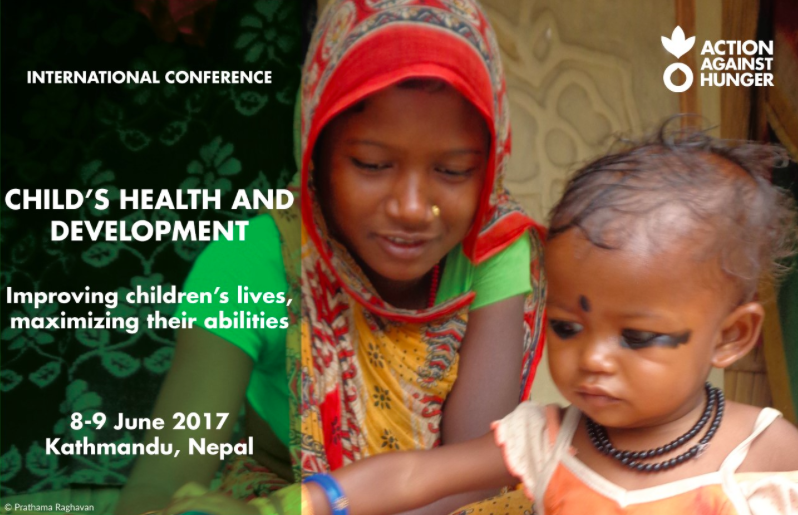Shaping the future: Our strategy for research and innovation in humanitarian response.

Shaping the future: Our strategy for research and innovation in humanitarian response.


This conference is now full.
Action Contre la Faim has organised a conference that will address the importance of the first 1000 days of life. This cricial period is known to be the foundation for multiple aspects of a child’s development such as emotional, cognitive and motor skills, that will support a child’s mental and physical well-being.
Date: 8-9 June, 2017
Location: Kathmandu, Nepal
Why is organizing a conference important for our research uptake?
ACF’s research project, in partnership with PATH’s Nutrition Embedding Evaluation Program (NEEP) came to a close in January 2017. During the last two years of the project the strategy for uptake activities were integrated with ongoing collaboration with relevant stakeholders from the Ministry of Health. As a result, psychosocial services were extended to all Outpatient Therapeutic Programmes that offer services for the management of Severe Acute Malnutrition in the district.
Another key aspect of the research uptake strategy is to present the findings of the project at an international conference. This is an opportunity to involve experts and government authorities, share knowledge, and discuss project initiatives in Nepal and elsewhere. It will highlight the importance of the research outcomes to major stakeholders, encouraging their integration in nutrition-related projects; revisit training curricula for health workers; and develop further research on this topic.
Why is linking health and development crucial for children’s lives?
During the first years of life, a child’s digestive system can support or hinder development. More and more studies demonstrate the importance of social conditions; stimulation by family members; childcare practices; nutritional status; maternal mental health; and various other stressful factors. Two crucial factors that contribute to the deterioration of growth and development are undernutrition and poor psychosocial stimulation.
Optimal child development is the product of the interplay between food, psychosocial stimulation, and sensitive responsiveness from caregivers (UNICEF, 2012). Moreover there is substantial evidence that early psychosocial stimulation with disadvantaged infants and young children can lead to both short- and long-term benefits to cognitive and social development (Engle et al 2007; 2011).
In different contexts – from emergency to recovery – it is essential to consider new approaches to address issues related to maternal and child health. Early childhood programming is widely considered as a cost-effective period for intervention, given that child development proceeds sequentially – that is, early developmental success will lead to better development of competencies later on.
What will be the main outcomes of the conference?
This conference will examine studies that show the contribution of psychosocial stimulation to enhancing children’s health and development in various cultures.
The conference will seek to highlight solutions that contribute to reducing vulnerabilities of mothers and young children in order to enhance early childhood development.
Discuss issues related to emergency settings, cost-effectiveness, and the solutions proposed to better understand the integration of early childhood development into policies.
View ACF’s project: Follow-up of Severely Malnourished Children (FUSAM): Effectiveness of a Combined Nutrition Psychosocial Intervention on Health and Development

 Please upgrade your browser
Please upgrade your browser
You are seeing this because you are using a browser that is not supported. The Elrha website is built using modern technology and standards. We recommend upgrading your browser with one of the following to properly view our website:
Windows MacPlease note that this is not an exhaustive list of browsers. We also do not intend to recommend a particular manufacturer's browser over another's; only to suggest upgrading to a browser version that is compliant with current standards to give you the best and most secure browsing experience.